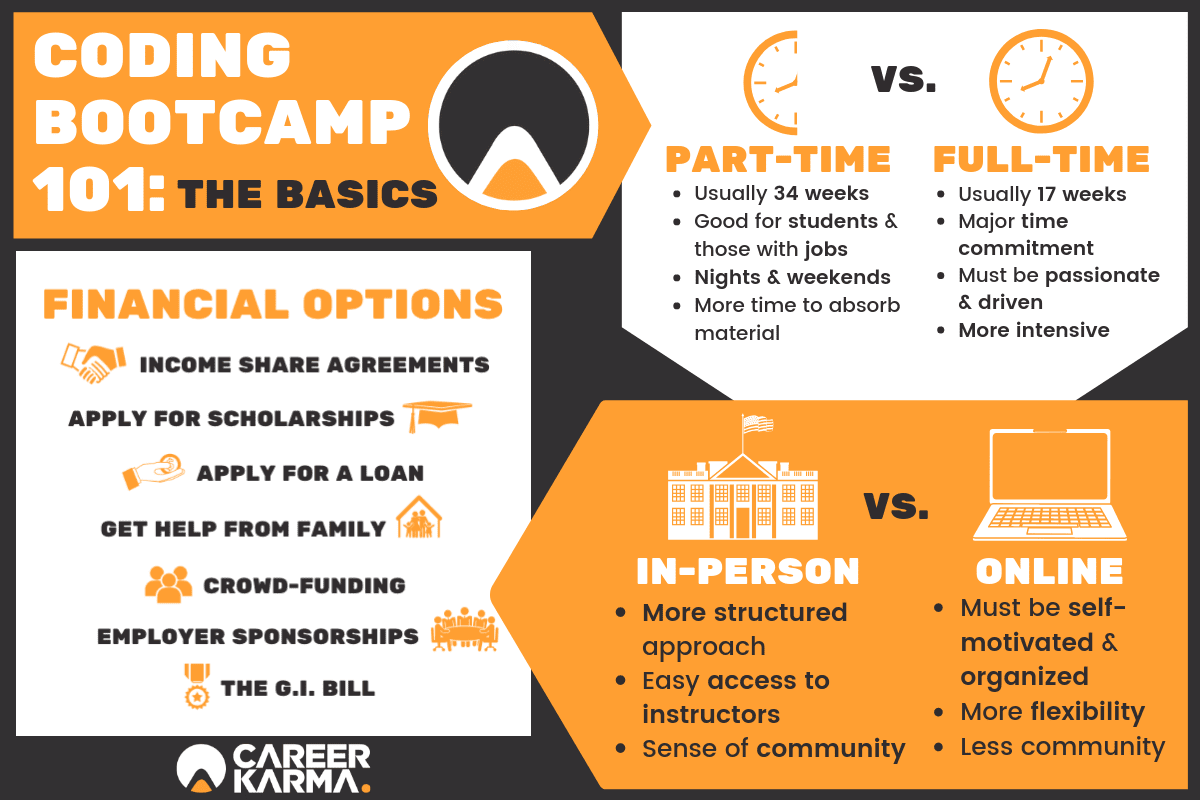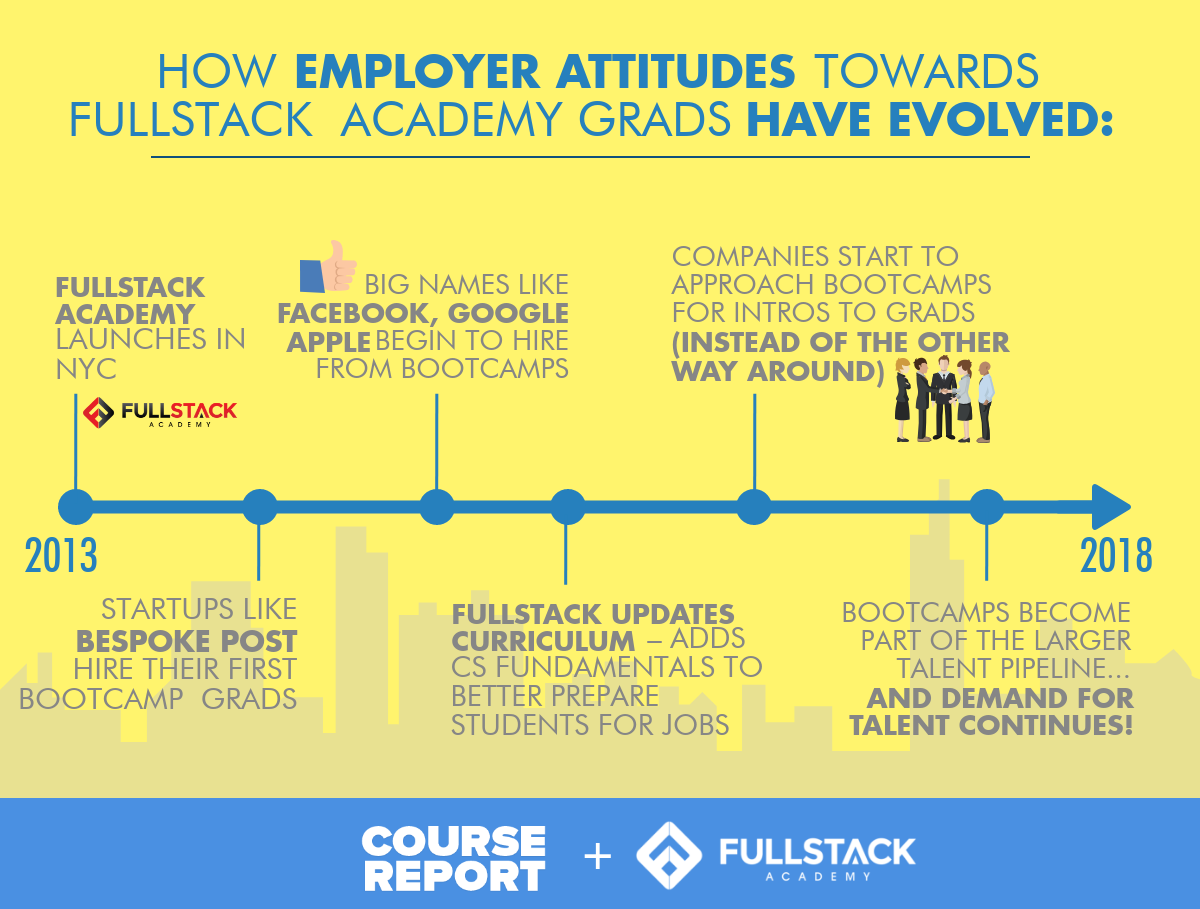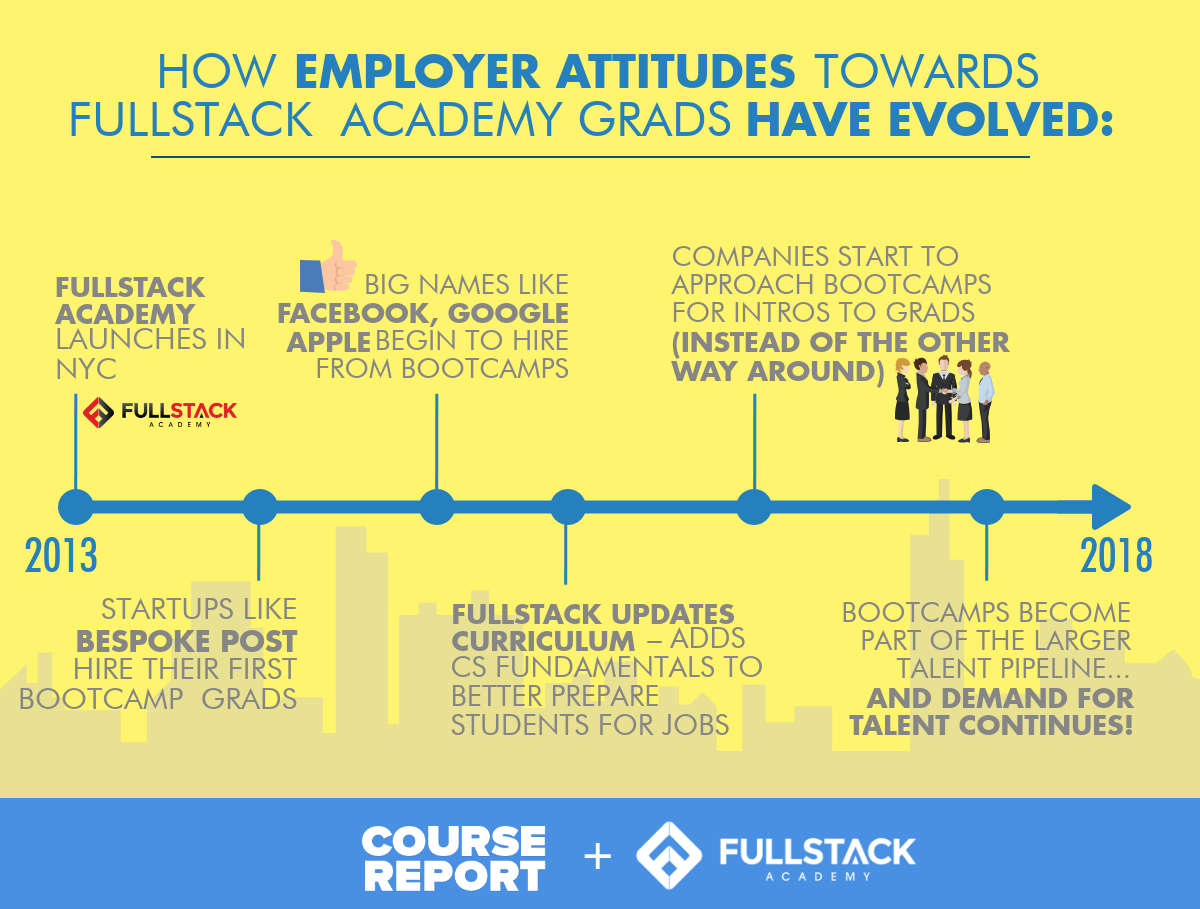Employer Perceptions of Bootcamp Graduates’ Skills: What Do Employers Think Of Coding Bootcamps

Employers hold varied perspectives on coding bootcamp graduates, recognizing both their strengths and weaknesses compared to traditionally trained developers. The rapid growth of bootcamps has created a diverse pool of candidates, leading to a nuanced understanding of their skills and job readiness within the tech industry.
Perceived Strengths of Bootcamp Graduates
Bootcamp graduates often demonstrate strong practical skills and a quick adaptability to new technologies. Their training focuses heavily on hands-on projects and real-world application, leading to proficiency in specific frameworks and tools relevant to current industry demands. This practical experience often translates into a faster learning curve and quicker integration into development teams. Many employers appreciate their eagerness to learn and their demonstrable passion for coding, qualities often highlighted in their portfolio projects. They are also frequently perceived as possessing better problem-solving skills honed through intensive project-based learning.
Common Skill Gaps in Bootcamp Graduates
While bootcamp graduates excel in practical application, some employers identify gaps in foundational computer science knowledge. Areas such as data structures and algorithms, software design principles, and object-oriented programming may receive less emphasis in bootcamp curricula compared to traditional computer science programs. This can lead to challenges in tackling complex problems requiring a deeper theoretical understanding. Furthermore, some employers note a potential lack of experience in working within large teams or using version control systems effectively, aspects that are typically developed through longer-term academic programs or extensive work experience. Finally, a thorough understanding of testing methodologies and best practices may be underdeveloped.
Job Readiness Comparison: Bootcamp vs. Four-Year Programs
The job readiness of bootcamp graduates versus those from four-year computer science programs is a complex issue. Bootcamp graduates often demonstrate immediate readiness for junior-level roles requiring specific technical skills, particularly in areas like front-end development or specific programming languages. However, graduates from four-year programs generally possess a broader theoretical foundation and potentially more experience with complex software development lifecycles. This often translates to a higher likelihood of success in roles demanding more advanced skills or leadership responsibilities. The ideal candidate often depends on the specific requirements of the role and the company’s priorities.
Highly Valued Technical Skills, What do employers think of coding bootcamps
Regardless of training background, employers consistently prioritize specific technical skills. Proficiency in at least one popular programming language (e.g., Python, Java, JavaScript, C++) is crucial. Strong problem-solving abilities, demonstrated through coding challenges or project portfolios, are highly valued. Experience with version control systems (like Git) and familiarity with agile development methodologies are also essential. Furthermore, a demonstrable understanding of testing principles and best practices is becoming increasingly important.
Perceived Strengths and Weaknesses by Programming Language
| Programming Language | Perceived Strengths of Bootcamp Graduates | Perceived Weaknesses of Bootcamp Graduates | Overall Assessment |
|---|---|---|---|
| Python | Strong in data science and scripting; rapid prototyping abilities. | Potential lack of depth in object-oriented programming concepts. | Generally positive, particularly for data-focused roles. |
| Java | Solid foundation in object-oriented programming; experience with enterprise-level applications. | May lack experience with modern Java frameworks and tools. | Positive, but requires a strong understanding of core concepts. |
| JavaScript | Excellent for front-end development; familiarity with popular frameworks (React, Angular, Vue). | Potential gaps in back-end development or database interaction. | Highly positive for front-end roles; needs further skills for full-stack roles. |
| C++ | Strong foundation in systems programming; good understanding of memory management. | May lack experience with modern C++ libraries and frameworks. | Positive, but highly dependent on the specific role requirements. |
Bootcamp Graduate Performance in the Workplace

Employers are increasingly considering graduates from coding bootcamps for entry-level developer positions. However, evaluating their performance requires a nuanced approach, differing slightly from the assessment of traditionally trained developers. Understanding how bootcamp graduates perform, both initially and long-term, is crucial for both employers and prospective students.
Employer Evaluation During Probationary Periods
Probationary Period Evaluations
During the probationary period, employers typically focus on evaluating a bootcamp graduate’s ability to quickly adapt to the workplace environment and demonstrate practical application of the skills learned in the bootcamp. This period usually involves a combination of practical assignments, code reviews, and regular performance check-ins with supervisors. Specific projects are assigned to gauge their problem-solving skills, teamwork abilities, and proficiency in the technologies relevant to the role. The emphasis is less on theoretical knowledge and more on the ability to translate learned skills into tangible results within a team setting. For instance, a typical project might involve fixing bugs in an existing system or developing a small feature for a larger application. Consistent feedback is provided throughout this period to help the graduate improve and adjust to the company’s workflow.
Key Performance Indicators (KPIs) for Bootcamp Graduates
Several key performance indicators (KPIs) are commonly used to measure the success of bootcamp graduates. These KPIs often reflect the immediate needs of the employer and the nature of entry-level roles.
| KPI | Metric | Example | Target/Expectation |
|---|---|---|---|
| Code Quality | Number of bugs/errors per line of code, adherence to coding standards | Less than 0.5 bugs per 100 lines of code, consistent use of established style guide | Meeting or exceeding team average within the first 3 months |
| Project Completion Rate | Number of assigned tasks completed on time and to specification | Successfully completing 80% of assigned tasks within deadlines | At least 80% completion rate within the probationary period |
| Problem-Solving Skills | Ability to independently identify and resolve issues, seek assistance appropriately | Successfully debugging a complex issue without significant assistance | Demonstrating independent problem-solving within 2 months |
| Teamwork and Collaboration | Effectiveness in working collaboratively with other team members, contribution to team goals | Positive feedback from team members regarding collaboration and communication | Positive team interactions and contributions within the first month |
Long-Term Retention Rates
While definitive, large-scale studies comparing long-term retention rates of bootcamp graduates versus traditionally trained developers are still emerging, anecdotal evidence suggests that retention rates are comparable, particularly when appropriate support and mentorship are provided. Factors such as the bootcamp’s reputation, the graduate’s performance during the probationary period, and the employer’s commitment to ongoing professional development all play significant roles. Some companies report similar retention rates for both groups, highlighting that a strong work ethic and aptitude, regardless of training background, are crucial for long-term success.
Supporting Professional Development
Employers often implement various strategies to support the professional development of bootcamp graduates. These strategies aim to bridge any potential skill gaps and ensure they can contribute effectively to the team long-term. Common approaches include mentorship programs, pairing junior developers with senior engineers, providing access to online learning platforms, and sponsoring attendance at industry conferences or workshops. Regular performance reviews and constructive feedback are also crucial components of this ongoing support. These initiatives help bootcamp graduates develop not just technical skills but also soft skills essential for career advancement, such as communication, collaboration, and problem-solving within a professional environment. For example, a company might assign a senior developer to mentor a bootcamp graduate, providing guidance and support throughout their first year.


Tim Redaksi